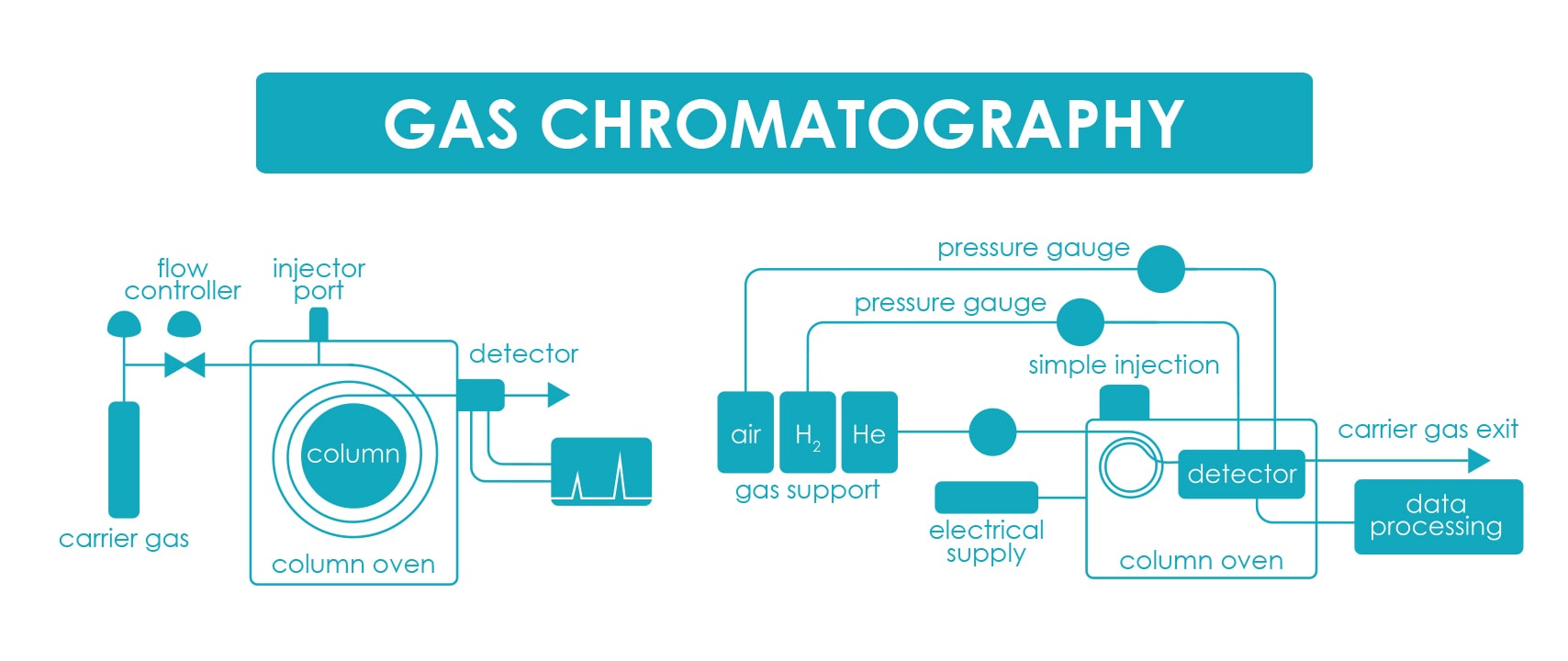Modern Canna is an industry leading cannabis testing lab that is headquartered in Lakeland, Florida. As a certified marijuana testing laboratory (CMTL), Modern Canna is responsible for providing state-specific medical marijuana testing to the medical marijuana treatment centers (MMTCs). By doing this, our laboratory is able to ensure that medical marijuana patients receive high-quality cannabis products that have been accurately tested. In addition to performing testing on medical marijuana, Modern Canna also provides hemp testing services on an international scale.
Why is Cannabis Tested?
Cannabis is tested to determine the potency of the product and to confirm that no harmful contaminants are present above regulatory limits. Potency testing will identify and quantify the cannabinoids, terpenes, and in some cases flavonoids that are present in a sample. This is an imperative part of the testing process, as it allows the laboratory to ensure that the product is labeled correctly. Without potency testing, determining dosing would be difficult for consumers. The contaminant testing allows the laboratory to verify the integrity of the product and to ensure that the product is safe for human consumption. Contaminant testing involves identifying and quantifying a number of harmful substances including, but not limited to, pesticides, solvents, mycotoxins, and microbials.
What Types of Cannabis Products are Tested?
Cannabis products that can be tested include:
- Cannabis extracts and distillate
- Cannabis concentrates such as waxes, shatter, budder, and hash
- Cannabis flower and plant material
- Cannabis infused products such as tinctures, topicals, capsules, and patches
- Cannabis edibles such as chocolates, candies, cookies, and infused drinks
What Instrumentation is Used for Cannabis Testing?
When testing cannabis products, several different types of highly sophisticated instrumentation must be utilized to obtain accurate and reproducible results. Depending on the analysis being performed, the instrumentation utilized will change. Below, we have provided a list of the various instrumentation that is used in the laboratory to isolate, identify, and quantify different compounds.
- Cannabinoid Testing - High-Performance Liquid Chromatography (HPLC)
- Terpene Testing - Gas Chromatography with Mass Spectrometry (GC-MS)
- Residual Solvent Testing - Gas Chromatography with Mass Spectrometry and a Headspace Autosampler (GC-MS-HS)
- Pesticide Testing - Liquid Chromatography with Tandem Mass Spectrometry (LC-MS/MS) and Gas Chromatography with Tandem Mass Spectrometry (GC-MS/MS)
- Mycotoxin Testing - Liquid Chromatography with Tandem Mass Spectrometry (LC-MS/MS)
- Heavy Metal Testing - Inductively Coupled Plasma with Mass Spectrometry (ICP-MS)
- Microbial Testing - Quantitative Polymerase Chain Reaction (qPCR)
- Water Activity Testing - Water Activity Meter
- Moisture Testing - Vacuum Desiccator

Types of Cannabis Testing
Cannabinoid Testing
Modern Canna tests for both natural and synthetic cannabinoids, totaling over twenty (20) different analytes. Natural cannabinoids are divided into major and minor cannabinoids. The major cannabinoids normally include tetrahydrocannabinol (THC), cannabidiol (CBD), and cannabigerol (CBG). Some of the synthetic cannabinoids that we are able to test for include exo-THC, hexahydrocannabinol (HHC), and THC-O-Acetate.
For more information on this type of testing, visit Cannabinoid Testing.
Cannabis Terpenes Testing
Cannabis plants contain over 100 different terpene compounds. While terpenes are best known for their aromatic properties, these compounds also have many medicinal benefits. Modern Canna currently analyzes cannabis samples for over forty (40) different terpenes. The terpenes present in a sample are unique to each cultivar and by determining the terpene profile, the laboratory can provide consumers with the unique fingerprint for each. Some of the most common terpenes found in cannabis are:
- Limonene
- Myrcene
- Pinene
- Caryophyllene
To learn more about this testing parameter, visit Cannabis Terpene Testing.
Cannabis Filth and Foreign Matter
A microscopic examination of samples is performed to determine the presence of contaminants such as:
- Mites
- Mold
- Fungi
- Mildew
- Insect parts
- Insect feces
Cannabis Microbial Testing
Modern Canna analyzes cannabis samples for microbial content including many pathogenic species. In addition to utilizing qPCR techniques, our team also does culture based traditional plating for some microbial panels.
Some of the microorganisms that the laboratory tests for include, but are not limited to:
- Aspergillus
- Shiga Toxin E.coli
- Total Yeast and Mold
- Total Aerobic Count
- Salmonella
- Listeria
See Cannabis Microbial Testing for more information.
Cannabis Mycotoxin Testing
Mycotoxins are secondary metabolites of microorganisms that can cause serious infections and allergic reactions. There are several different types of mycotoxins, however, the primary ones that are focused on in cannabis testing are:
- Aflatoxin B1
- Aflatoxin B2
- Aflatoxin G1
- Aflatoxin G2
- Ochratoxin A
To learn more about these compounds and this type of testing, visit Cannabis Mycotoxin Testing.
Cannabis Residual Solvent Testing
Derivative products produced from cannabis flower may contain solvents depending on the extraction technique. As such, Modern Canna tests derivative and edible products to determine if residual solvents are present in the samples. Some of the most commonly used extraction solvents for cannabis are:
- Butane
- Hexane
- Propane
- Pentane
- Ethanol
For more on residual solvents, see Cannabis Residual Solvents Testing.
Cannabis Pesticide Testing
Cannabis is known to be a bioaccumulator and as a result, the plant will often uptake and accumulate harmful contaminants if they are present in the growth media or are added as a means of removing pests or microorganisms. As such, cannabis flower, derivative, and edible products must be tested for agricultural agents to ensure these harmful compounds did not make it into the final product that will be consumed. Currently, Modern Canna analyzes cannabis samples for over seventy (70) agricultural agents. These agricultural agents include compounds that fall into the following categories:
- Pesticides
- Herbicides
- Fungicides
- Insecticides
- Plant Growth Regulators
For more on agricultural agents, see Cannabis Pesticide Testing.
Cannabis Heavy Metals Testing
Another category of contaminants that can accumulate in the cannabis plant are heavy metals. These compounds are often added to the plant from the soil or growth media and will accumulate in the plant over its lifecycle. If this occurs, the amount of heavy metals present in the material can be toxic to humans. As such, Modern Canna tests cannabis products for the following heavy metals:
- Arsenic
- Cadmium
- Lead
- Mercury
To learn more about this type of testing, visit Cannabis Heavy Metals Testing.
Cannabis Water Activity Testing
Water Activity (WA) testing determines how much free water is present in a sample, which will determine the product's ability to have microbial growth occur. Testing cannabis products for water activity is important, as it will ensure that the product will not grow microbes after being packaged.
To learn more about this testing parameter, visit Cannabis Water Activity Testing.
Cannabis Moisture Testing
Determining the moisture content of cannabis flower material will allow the laboratory to calculate the total amount of water present in a sample. This is important when the laboratory is applying dry-weight corrections to results and will help cultivators know how wet or dry their flower is. This is a testing parameter that has received a lot of scrutiny recently and our laboratory is currently conducting more research to better understand this testing parameter.
Cannabis Stability Testing
An additional service that is not currently required by state regulations, but is an important part of the testing landscape is stability testing. The goal of cannabis stability testing is to determine the shelf-life and integrity of cannabis products after they have been packaged and remain stored in that original packaging for an extended period. By conducting this type of testing, Modern Canna can provide producers with information regarding suggested expiration dates and data on the chemical integrity of the products.
See Cannabis Stability Testing for more information on this testing parameter.
Cannabis Nutrient Testing
Nutrient testing involves quantifying the concentration of various macronutrients and micronutrients that are present in a sample. This type of testing can be conducted on growing mediums, source water, and other cultivation inputs, as well as cannabis plant material. By conducting this testing, cultivators can have accurate information about the health of their cannabis plants throughout their life-cycle. Currently, Modern Canna can provide nutrient data for a standard panel of twelve (12) nutrients that include:
Macronutrients:
- Calcium
- Potassium
- Magnesium
- Nitrogen
- Phosphorus
- Sulfur
Micronutrients:
- Boron
- Copper
- Iron
- Manganese
- Molybdenum
- Zinc
For additional information about this type of testing, see Cannabis Nutrient Testing.
Cannabis Virus Testing
Cannabis virus testing is becoming an important part of the cultivation screening process as it allows cultivators to identify plant viruses in the early stages. Cannabis specific plant viruses can negatively impact a cannabis harvest and can lead to reduced yields, stunted growth, and even crop failure. Currently, Modern Canna is able to test cannabis leaf and root material for the following viruses:
- Hop Latent Viroid
- Lettuce Chlorosis Virus
- Cannabis Cryptic Virus
- Beet Curly Top Virus
Why Providers Choose Modern Canna for Cannabis and Hemp Testing
Several of the largest cannabis and hemp producers in the world entrust Modern Canna as their third-party lab testing provider. This is no coincidence, considering how much effort we put into keeping our labs operating at optimal levels. Producing accurate, reproducible, and legally defensible data in a timely manner is our main focus. However, what separates Modern Canna from other third-party testing labs is the additional support services we provide, which help make the experience seamless and enjoyable for our customers. Contact us for testing services today!


